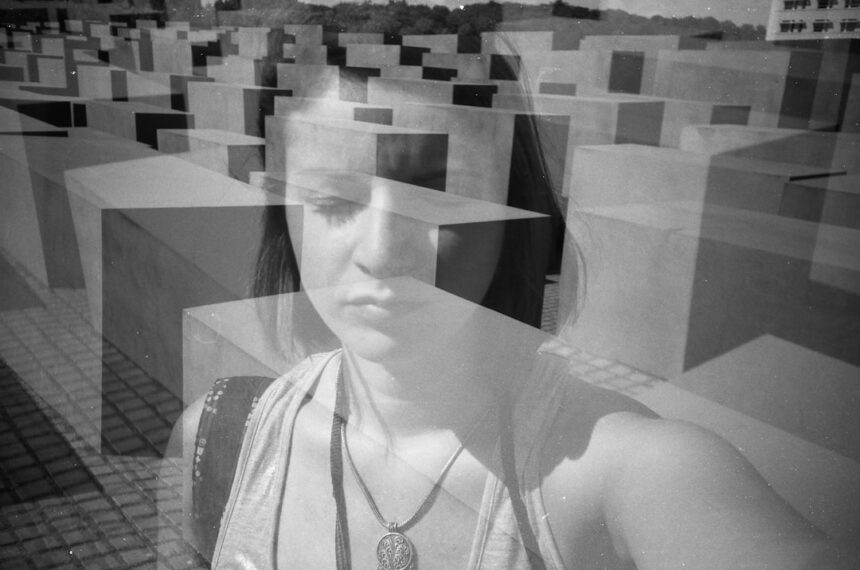Depersonalization and derealization are psychological phenomena that can leave individuals feeling detached from themselves or their surroundings. When you experience depersonalization, you may feel as though you are an observer of your own life, as if you are watching yourself from a distance. This sensation can be disconcerting, leading to a sense of unreality about your thoughts, feelings, and actions.
You might find yourself questioning your identity or feeling disconnected from your emotions, as if they belong to someone else. This state can be temporary or chronic, depending on various factors, including stress levels and underlying mental health conditions. On the other hand, derealization involves a sense of detachment from the external world.
You may perceive your environment as strange or unreal, as if you are living in a dream or a movie. Everyday objects may seem distorted or unfamiliar, and you might struggle to connect with the people around you. This disconnection can create a profound sense of isolation, making it difficult to engage with the world as you once did.
Both depersonalization and derealization can occur independently or together, often triggered by stress, trauma, or anxiety. Understanding these experiences is crucial for those who find themselves grappling with such feelings.
Key Takeaways
- Depersonalization is a mental health condition characterized by feeling detached from oneself, while derealization involves feeling disconnected from the surrounding environment.
- Symptoms of depersonalization and derealization may include feeling like an outside observer of one’s thoughts or actions, experiencing a sense of unreality, and having difficulty connecting with emotions.
- Causes of depersonalization and derealization can include trauma, stress, anxiety, depression, and substance abuse.
- Depersonalization and derealization are closely related and often co-occur, with individuals experiencing both symptoms simultaneously.
- Diagnosing depersonalization and derealization involves a thorough evaluation of symptoms, medical history, and ruling out other potential causes, often by a mental health professional.
Symptoms of Depersonalization and Derealization
The symptoms of depersonalization and derealization can vary widely from person to person, but they often share common threads. When you experience depersonalization, you might notice a sense of emotional numbness or a feeling that your body does not belong to you. You may feel as though you are living in a fog, where your thoughts and actions seem disconnected from your physical self.
This can lead to confusion and anxiety, as you struggle to reconcile your internal experiences with the external world. Derealization symptoms can manifest in similar ways, with a focus on the perception of your surroundings. You may find that familiar places appear distorted or dreamlike, making it challenging to navigate through daily life.
These sensations can create a sense of unreality that is both unsettling and disorienting. In some cases, individuals may also experience visual distortions, such as objects appearing larger or smaller than they actually are.
Recognizing these symptoms is essential for understanding the impact they can have on your overall well-being.
Causes of Depersonalization and Derealization

The causes of depersonalization and derealization are complex and multifaceted. Often, these experiences are linked to significant stressors or traumatic events in your life. For instance, if you have faced a traumatic incident—such as an accident, abuse, or the loss of a loved one—you may find yourself slipping into a state of depersonalization as a coping mechanism.
This dissociative response allows your mind to distance itself from the emotional pain associated with the trauma, creating a protective barrier that can sometimes lead to prolonged feelings of detachment. Additionally, anxiety and panic disorders are common precursors to depersonalization and derealization. When you experience heightened anxiety levels, your brain may respond by triggering these dissociative states as a way to manage overwhelming emotions.
Substance use can also play a role; certain drugs or alcohol can induce feelings of detachment and unreality. Understanding the underlying causes of these experiences is vital for developing effective coping strategies and seeking appropriate treatment.
The Relationship Between Depersonalization and Derealization
| Study | Sample Size | Depersonalization Score | Derealization Score |
|---|---|---|---|
| Smith et al. (2018) | 200 | 25.6 | 18.3 |
| Jones et al. (2019) | 150 | 28.9 | 20.5 |
| Johnson et al. (2020) | 180 | 30.2 | 22.1 |
Depersonalization and derealization are closely intertwined phenomena that often coexist in individuals experiencing dissociative symptoms. While they can occur independently, many people report experiencing both simultaneously. When you feel detached from yourself (depersonalization), it can naturally lead to feelings of disconnection from your environment (derealization).
This relationship creates a cycle where one experience exacerbates the other, making it challenging to break free from the grip of these sensations. Moreover, the relationship between these two experiences can complicate the way you perceive reality. As you navigate through life feeling disconnected from both yourself and your surroundings, it may become increasingly difficult to engage with others or participate in activities that once brought you joy.
This duality can lead to heightened feelings of isolation and confusion, further perpetuating the cycle of depersonalization and derealization. Recognizing this relationship is essential for understanding how these experiences impact your mental health and overall quality of life.
Diagnosing Depersonalization and Derealization
Diagnosing depersonalization and derealization typically involves a comprehensive evaluation by a mental health professional. When you seek help, the clinician will likely conduct interviews and assessments to understand your symptoms better and their impact on your daily life. They may ask about your medical history, any traumatic experiences you’ve encountered, and how long you’ve been experiencing these feelings of detachment.
It’s important to note that depersonalization and derealization are classified as dissociative disorders in the Diagnostic and Statistical Manual of Mental Disorders (DSM-5). To receive a diagnosis, your symptoms must be persistent and cause significant distress or impairment in functioning. The clinician will also rule out other potential causes for your experiences, such as substance use or other mental health conditions like anxiety or depression.
A thorough diagnosis is crucial for developing an effective treatment plan tailored to your specific needs.
Treatment Options for Depersonalization and Derealization

Treatment options for depersonalization and derealization vary based on individual needs but often include psychotherapy as a primary approach. Cognitive-behavioral therapy (CBT) is particularly effective in helping you identify negative thought patterns associated with these experiences. Through CBT, you can learn coping strategies to manage anxiety and stress while gradually re-engaging with your emotions and surroundings.
In some cases, medication may be prescribed to address underlying issues such as anxiety or depression that contribute to depersonalization and derealization symptoms. Antidepressants or anti-anxiety medications can help stabilize mood and reduce feelings of detachment. However, medication is typically used in conjunction with therapy for optimal results.
It’s essential to work closely with your healthcare provider to determine the best course of action for your unique situation.
Coping Strategies for Depersonalization and Derealization
Coping with depersonalization and derealization requires a multifaceted approach that combines self-care practices with therapeutic techniques. One effective strategy is grounding exercises, which help anchor you in the present moment when feelings of detachment arise. Techniques such as deep breathing, mindfulness meditation, or focusing on physical sensations—like touching an object or feeling the ground beneath your feet—can help reconnect you with reality.
Additionally, maintaining a healthy lifestyle can significantly impact your overall well-being. Regular exercise, a balanced diet, and sufficient sleep contribute to emotional stability and resilience against stressors that may trigger dissociative episodes. Engaging in creative outlets—such as art, writing, or music—can also provide an avenue for self-expression and emotional release.
Finding supportive communities or groups where you can share your experiences with others who understand can further enhance your coping strategies.
The Impact of Depersonalization and Derealization on Daily Life
The impact of depersonalization and derealization on daily life can be profound and far-reaching. You may find that simple tasks become overwhelming when you’re grappling with feelings of detachment. Activities like going to work, socializing with friends, or even running errands can feel daunting when you’re struggling to connect with yourself or your environment.
This disconnection can lead to avoidance behaviors, where you withdraw from situations that trigger discomfort. Moreover, relationships may suffer as a result of these experiences. Friends and family might not fully understand what you’re going through, leading to feelings of isolation or frustration on both sides.
You may feel misunderstood or unable to articulate your experiences effectively, which can create barriers in communication. The cumulative effect of these challenges can lead to decreased quality of life and increased feelings of loneliness.
Depersonalization and Derealization in the Context of Mental Health Disorders
Depersonalization and derealization often coexist with other mental health disorders, complicating diagnosis and treatment. Conditions such as anxiety disorders, depression, post-traumatic stress disorder (PTSD), and borderline personality disorder frequently feature dissociative symptoms as part of their clinical presentation. When you experience these symptoms alongside other mental health challenges, it becomes crucial to address them holistically.
Understanding the interplay between depersonalization/derealization and other disorders is essential for effective treatment planning. For instance, if anxiety is a significant contributor to your dissociative experiences, addressing the anxiety through therapy or medication may alleviate some of the detachment symptoms. A comprehensive approach that considers all aspects of your mental health will provide the best chance for recovery.
Seeking Support for Depersonalization and Derealization
Seeking support for depersonalization and derealization is an important step toward healing. Whether through therapy, support groups, or trusted friends and family members, having a network of understanding individuals can make a significant difference in your journey. When you reach out for help, it’s essential to communicate openly about your experiences so that others can better understand what you’re going through.
Support groups specifically focused on dissociative disorders can provide a safe space for sharing experiences and coping strategies with others who have faced similar challenges. These groups foster connection and validation while reducing feelings of isolation that often accompany depersonalization and derealization. Remember that seeking support is not a sign of weakness; rather, it demonstrates strength in recognizing the need for assistance on your path toward recovery.
Living with Depersonalization and Derealization: Personal Stories and Perspectives
Living with depersonalization and derealization can be an isolating experience; however, many individuals have shared their personal stories that highlight resilience and hope amidst these challenges. Some describe their journey as one marked by ups and downs—days when they feel more connected to themselves and their surroundings juxtaposed against days filled with overwhelming detachment. These narratives often emphasize the importance of self-compassion during difficult times.
Others have found solace in creative expression as a means of processing their experiences with depersonalization and derealization. Through art, writing, or music, they have discovered ways to articulate their feelings when words fail them in everyday conversations. These personal stories serve as reminders that while the journey may be fraught with difficulties, there is strength in vulnerability—and healing is possible through connection, understanding, and perseverance.
In conclusion, understanding depersonalization and derealization is crucial for those who experience these phenomena or know someone who does. By recognizing symptoms, exploring causes, seeking appropriate treatment options, employing coping strategies, and sharing personal stories, individuals can navigate their journeys toward healing while fostering connections that promote understanding and support.
Depersonalization and derealization are dissociative disorders that can significantly impact an individual’s perception of reality and self-identity. These conditions often manifest as a feeling of being detached from one’s own body or experiencing the world as unreal. For those seeking a deeper understanding of these phenomena, an insightful article can be found on Unplugged Psychology’s website. This article delves into the symptoms, causes, and potential treatments for depersonalization and derealization, providing valuable information for both sufferers and those supporting them. To explore this topic further, you can read more about it by visiting this article on Unplugged Psychology.
Learn More About Depersonalization & Derealization
FAQs
What is depersonalization and derealization?
Depersonalization is a mental health condition where a person feels detached from themselves, as if they are observing themselves from outside their body. Derealization is a similar condition where a person feels detached from their surroundings, as if the world around them is unreal or distorted.
What are the symptoms of depersonalization and derealization?
Symptoms of depersonalization and derealization may include feeling like an outside observer of one’s thoughts, feelings, and body, feeling like the world is unreal or distorted, emotional numbness, and a sense of detachment from oneself and one’s surroundings.
What causes depersonalization and derealization?
The exact cause of depersonalization and derealization is not fully understood, but it is often associated with anxiety, trauma, stress, and certain mental health disorders such as depression and PTSD. Substance abuse and certain medications can also trigger these symptoms.
How are depersonalization and derealization treated?
Treatment for depersonalization and derealization may include therapy, such as cognitive behavioral therapy (CBT) and mindfulness-based approaches, to help individuals understand and manage their symptoms. Medications may also be prescribed in some cases to address underlying anxiety or depression.
Can depersonalization and derealization be cured?
While there is no specific cure for depersonalization and derealization, many individuals find relief from their symptoms through therapy and medication. With proper treatment and support, it is possible for individuals to learn to manage and reduce the impact of these symptoms on their daily lives.




